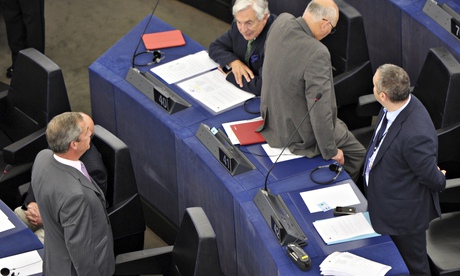So I treated myself to a nostalgic story of how Hannibal Heyes & Kid Curry sailed close to the line of the law again. This got me to wondering, if we couldn't use some of the justice and sheriffing methods used in these stories to modern day policing.
So here are some of the ideas I am thinking of:
- Police officers should wear their batons low on their hips in holsters, and we should organise quick on the draw competitions.
- When people get into fights on the street, we should only arrest those who started the fight
- We need to form intelligence networks with bar room floozies who clearly will know all that there is to know about what is going on in a town
- We should believe people's stories and leave the lawyers out of the debates
- We need more judges and magistrates who have the Wisdom of Solomon and leave them to make decisions that often bend the law but are the right decisions
- Outlaws should be able to earn their amnesty by staying out of trouble
- We need to reinstate the police mounted division
- Boots and gloves look mighty fine and cool so they should become a standard part of police uniform
- Could we use posses more?
_________________________________________________
The Secret PCC Diary until now:
Legal disclaimer: just in case you thought this series of secret PCC blogs is based upon a real person or persons: it isn't. It really isn't. Any similarity to a living PCC is entirely coincidental.
_____________
PS: This blog is dedicated to the memory of Pete Duel who tragically committed suicide at the end of the first series of Alias Smith & Jones. His suicide was the first one that ever really mattered to me as boy and I still grieve for him. He seemed such a bright & beautiful actor and I could not understand how he came to end his own life. I have learnt more about mental health since then. I now know that there is no real 'logic' to why people do kill themselves, but sadly people do when it makes sense to them. RIP Pete Duel.
- Collected diary - days one to ten
- Day 50
- Day 68
- Appointing the new Chief Constable
- PCCs must show people its worth voting (interview with the secret PCC)
- Fields of ponies: the Secret PCC does Income Generation!
- By the pricking of my thumbs, something radical this way comes!
- Too big for their pixie boots: the Secret PCC makes a speech to his Police & Crime Panel
- Witchcraft: the Secret PCC & managing awkward Chiefs
- Social media policy (Secret Diary of a PCC)
- The magic of Brasso (Secret diary of a PCC)
- The 'not giving a floating duck' problem (Secret Diary of a PCC)
- Secret PCC: A LibDem MP considers applying for Direct Entry
- Chief Constable Zero: the Secret PCC gets tough
- The Art of Listening to the Public (the Secret PCC explains all)
- Secret PCC: my life long quest for the smooth vinegar flavoured cucumber
- The Glossary: The Secret PCC is relieved
Legal disclaimer: just in case you thought this series of secret PCC blogs is based upon a real person or persons: it isn't. It really isn't. Any similarity to a living PCC is entirely coincidental.
_____________
PS: This blog is dedicated to the memory of Pete Duel who tragically committed suicide at the end of the first series of Alias Smith & Jones. His suicide was the first one that ever really mattered to me as boy and I still grieve for him. He seemed such a bright & beautiful actor and I could not understand how he came to end his own life. I have learnt more about mental health since then. I now know that there is no real 'logic' to why people do kill themselves, but sadly people do when it makes sense to them. RIP Pete Duel.
.png)




